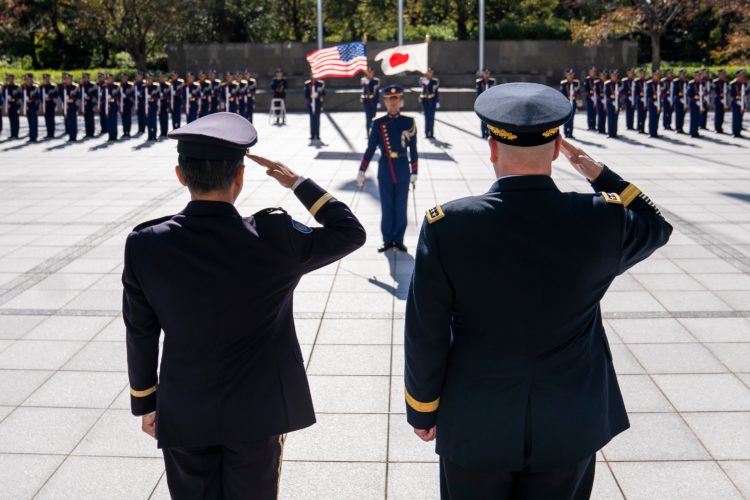President Donald Trump has reportedly requested that the Japanese government more than quadruple its annual contribution for stationing American troops in the country. This would mark a significant increase from the roughly $1.8 billion (197.4 billion yen) currently earmarked for the purpose in Japan’s fiscal budget.
This is part of a wider move to get U.S. allies to increase defense spending across the board. Neighboring South Korea is similarly being asked to spend more, as are the majority of NATO member states.
The request was allegedly put forward by then-National Security Advisor John Bolton in July during a visit to East Asia. During the trip, Bolton met with Foreign Minister Taro Kono and then Defense Minister Takeshi Iwaya; both were reported to have rejected the request.
According to a Japanese foreign ministry spokesman, there are currently no ongoing negotiations regarding a new agreement. The current one is set to expire in March 2021.
Roughly 50,000 U.S. troops are currently stationed in Japan. American forces have been based in the country continuously since the end of the Second World War.
The White House is hoping to restart the stalled North Korean nuclear negotiations. Though tensions have reduced considerably since late 2017/early 2018 when President Trump infamously tweeted that he possessed “a much bigger & more powerful” nuclear button than Kim Jong-Un, little concrete progress has been made on either denuclearization or sanction relief.
The decision to couple re-engagement with North Korea with calls for massive military expenditure increases is unlikely to be successful: In addition to likely irritating U.S. allies and failing to create a unified front ahead of any future negotiations, it also fails to take into account sensitivities around the role of the military in Japan.In recent years both the Japanese public and officials have increasingly opposed the U.S. military presence in the country.
Japan already covers three quarters of the cost of U.S. troops — this is by far the highest percentage paid by any U.S. ally. In addition, the country’s post-WWII pacifist tradition, has caused even domestic politics to occasionally become violent with parliamentarians even fighting during sessions over the issue of Japanese remilitarization. Lastly, Japanese economic growth has slowed down considerably due to the ongoing U.S.-China trade war, and such an increase will likely exacerbate the country’s fiscal problems.
A refusal to hike spending so drastically will not probably cause an American withdrawal from Japan. In addition to hosting the U.S. Navy’s Seventh Fleet, which includes the sole permanently forward deployed carrier strike group, the stationing of American troops enables Washington to act swiftly in the wider Asia-Pacific region.
Already have an account? Sign In
Two ways to continue to read this article.
Subscribe
$1.99
every 4 weeks
- Unlimited access to all articles
- Support independent journalism
- Ad-free reading experience
Subscribe Now
Recurring Monthly. Cancel Anytime.











COMMENTS